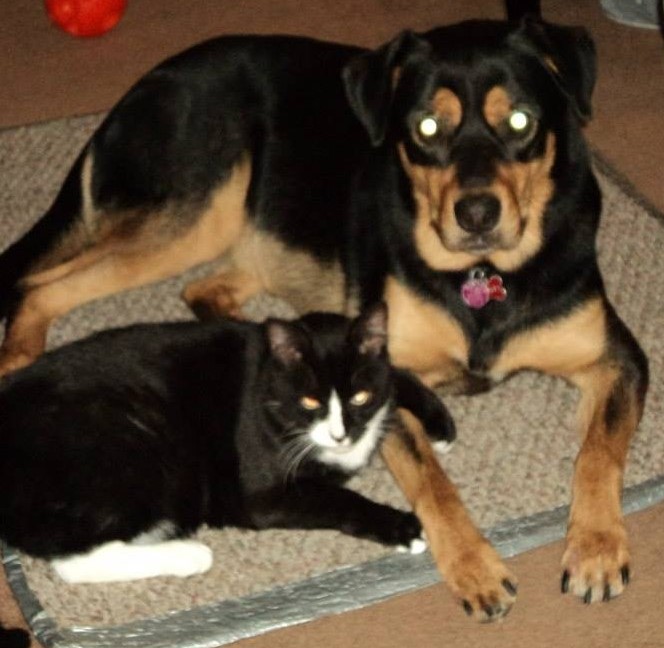Our November In House profile focuses on our Membership Services Administrator, Caroline Ives! Caroline shared with us her journey with CMRRA, her passion for music, and her fond memories of PEI’s music scene.
You’re currently CMRRA’s Membership Services Administrator, what does your day-to-day work life entail?
For me, a typical day involves answering emails from both clients and staff, processing publishers’ account and catalogue updates, reaching out for information, and research. I take care of a wide variety of tasks, from changes in contact information to publisher-level disputes, and everything in between. Some days I spend a lot of time on correspondence or research, and others I’m able to concentrate on completing the updates that are assigned to me.
As the most senior member of the Membership Services team (there are now four of us – yay!), I tend to end up with inquiries and updates that may be more complicated or involve more research than a typical update would. We can extract a lot of information from our Licensing and Distribution System (LDS) through targeted reports. Sometimes, though, you just need to go back to the older databases, like our Legacy system archive database. Of course, more information to sort through means more time to interpret it. Sometimes that frustrates my goal of completing an update as quickly as a client would like, but getting it right the first time is very important. I’ve always been very detail-oriented, which I’ve found can be both a blessing and a curse in this position!
Growing up in PEI, how did you find the music culture differs from the culture in Ontario? What makes it so special?
Oh my gosh! Growing up in PEI in the 70s and 80s the music culture was predominantly made up of local artists playing in the pubs and bars around the Island. The East Coast Music Association was just starting up, so there weren’t yet the East Coast Music Awards or local music festivals. Artists like Ron Hynes and Matt Minglewood were staples of the bar/pub scene. We did get up-and-coming (at the time) artists like Glass Tiger, Platinum Blonde, Brighton Rock and, of course, Charlottetown’s very own Haywire. Unfortunately, the venues available in those days weren’t big enough to attract the major acts of the day. Most of them would opt for playing one or two shows in Moncton or Halifax, so islanders would have to travel to New Brunswick or Nova Scotia if they wanted to see them. To me, PEI seemed very far away from where the action was. If you wanted to be a part of the Canadian Music industry, the place to be was Toronto. It seemed to be the centre of everything.
One thing I still miss about PEI is the radio. Being so small, I think we had five radio stations to choose from. My favourite was CFCY because they played just about everything. On a typical day, you could hear Anne Murray or Celine Dion one minute, and Def Leppard or Rush the next. Saturday night was the Hoedown where you heard the likes of George Jones, Tammy Wynette and Loretta Lynn, maybe a bit of Randy Travis, Shania Twain or Terri Clark more recently. On Sunday morning they played classic rock – The Guess Who, Neil Diamond, Dionne Warwick, etc. Listeners were exposed to a wide variety of music from the 50’s to the present day, country, adult contemporary, pop, rock, and alternative. I loved it! When I arrived in Toronto in 1993, I couldn’t believe how many different stations there were! Every genre seemed to have at least one. The closest I ever got to a station like the one I grew up with was Mix 99.9 (now Virgin Radio). These days I usually rotate through my local pop, classic rock and hard rock stations.
Being away from the Maritimes for as long as I have been, I’m sorry to say I’m not as familiar with the scene anymore. I am, however, excited to see the growth and development that’s taken place in the East Coast music community since I left. These days there is more support thanks to the East Coast Music Association, for example, more recognition through the annual East Coast Music Awards, and, of course, exposure through YouTube and social media. While I may not be familiar with those active in it, I do get a little thrill every time I see a PEI address on a new CMRRA affiliate’s application forms.
You’ve been working for CMRRA for almost 25 years! Can you tell me about how you came to first start working at CMRRA and how that journey led you to win the first-ever Cyril Devereux Award in 2001?
Editor’s note: Since 2001, CMRRA presents the Cyril Devereux Award to an employee who has exhibited excellence in all aspects of his or her position, including exemplary client service, impeccable work quality and productivity, genuine care and enthusiasm for a job well done, courtesy, professionalism, and team spirit. Cyril Devereux (Mr. D) was CMRRA’s first General Manager and was a stalwart friend to Canada’s songwriter and music publisher community. This award serves to honour the qualities that our dear Mr. D best exemplified.
I came to be here thanks to a lead from the Harris Institute. I graduated from their Recording Arts Management (RAM) program in 1994. I was fortunate enough to be placed right out of school with a long-time artist manager in Toronto. After a couple of years, things got lean, as they do, so he had to let me go. Finding myself suddenly unemployed I called the Harris Institute to ask if they knew of anyone in the industry who might be hiring. One of the two leads they gave me was CMRRA. I called, got an interview with Caroline Rioux, Manager of the Licensing Department at the time, and was relieved to be hired on the spot!
I began with basic research and data entry. After just a few months Caroline approached me about filling the recently vacated Pay-as-You-Press position, suggesting it would be a good next step for me. Caroline was confident I could meet the challenge, so, despite my own doubt, I took the position. Turned out that my time as a Pay-as-You-Press (PAYP) licensing administrator served as a great foundation for everything else I’ve done at CMRRA since.
CMRRA was organized into separate departments at the time (Copyright, Licensing, and Royalties) so my primary tasks included answering applicants’ many questions and processing their license applications. Over time, I also learned how each of the other departments worked; what the Copyright department required to update a song or publisher record, so a license could be issued, and what the Royalties department required to issue royalty payments based on those licenses.
From there, I moved up to dealing with the Independent labels working under Lori Ellis, Supervisor of the Independent (“Indie”) Department at that time. After a couple of years, I shifted gears for a little while, working as a member of the EMI/Warner team. By that time, we’d moved away from separate departments to a team structure that included at least one specialist from the copyright, licensing and royalty areas, who could also pivot to support each other depending on what was needed most at each stage of a royalty quarter. Eventually, I made my way back to the indies and became Supervisor of the Indie Team in 2003.
After a brief opportunity that took me away from CMRRA, I returned in 2005, and since that time I’ve worked in the Online/Tariff Department and on the Gracenote lyrics team. In 2011, I took on the position of Membership Services Administrator, where I’ve been ever since.
I can’t speak to how I came to be chosen as the first Cyril Devereux Award recipient specifically, but I can tell you it was a shock. To this day I consider it a huge badge of honour. As anyone who knew Mr. Devereux (Mr. D, as we affectionately called him) knows, he was an exemplary gentleman who was highly respected, not only at CMRRA, but in our industry as a whole. To be recognized with the award created in his honour was amazing.
Part of the credit must be given to the great examples of hard-working, dedicated staff CMRRA has had, from Mr. D right down to the people I work with every day. Our managers and supervisors are consistently focused on getting things done on time and as efficiently and accurately as possible, and they encourage employees to actively contribute not just with their day-to-day work, but with their ideas and suggestions as well. With many musicians and music lovers working here I don’t think it takes very long for someone newly hired to understand how important CMRRA’s ongoing efforts are to ensure fair compensation for music creators. Too often this is lost on or altogether ignored by those who seek to profit from their work. Music is the foundation of this industry, and without those that create it, there wouldn’t be an industry. I’m proud to be part of the team that works to support songwriters and music publishers in making sure their royalties are flowing back to them.
How has the pandemic affected your relationship with music?
I don’t know that the pandemic has had much of an effect on my relationship with music. For as long as I can remember it has been as important to my well-being as eating and sleeping. There’s always a song in my head. I listen to music while I work, while I relax, while I’m cooking or cleaning, and definitely while I’m driving. 😊
Thinking about becoming a client of CMRRA? Already a client but you have questions? Email us at [email protected] and we’ll get you the answers you need.




